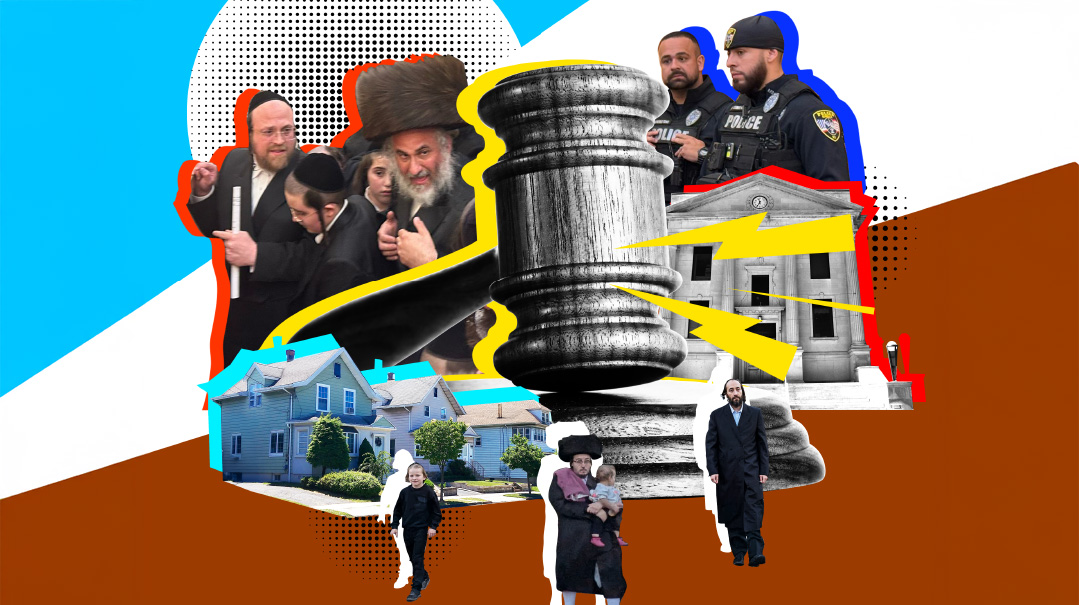Squeezed Out
| April 22, 2025Is the town of Linden, New Jersey, out to make life intolerable for its Orthodox Jewish residents?

When families tried to add extra bedrooms in their basements, the city declared it illegal to sleep in a basement. When school buses loaded up with Jewish children, police pulled them over for traveling on certain streets. When large families needed to purchase more trash cans, it suddenly became forbidden. Is the town of Linden out to make life intolerable for its Orthodox Jewish residents?
New Jersey municipalities can’t seem to learn from each other’s mistakes.
Following a line of costly failures, the city of Linden now seems determined to throw down the gauntlet with its Orthodox Jewish population.
A crowd dressed in resplendent shtreimlach and beketshes filled the Linden city hall for an odd Chol Hamoed trip last Tuesday night in response to new ordinances that seemingly target the chassidic population. Coverage of the gathering quickly went viral due to the striking imagery.
The boilerplate legalese in the ordinances seemed like typical land use and zoning laws passed by suburban locales, but these were daggers aimed at the heart of the Orthodox Jewish lifestyle. The salvo in Linden comes in the wake of a decade of New Jersey towns waging legislative battles against their frum residents. All these efforts ended up losing, costing local taxpayers millions of dollars.
When the Clifton city planning board rejected Congregation Shomrei Torah’s plans for a new shul in 2010, it triggered a nine-year legal fracas that ended in Clifton paying the kehillah $2.5 million. Jackson Township was sued multiple times from 2014 to 2020 for preventing Jewish schools from opening, banning use of private homes for religious services, rejecting a neighborhood development marketed for Jews, and even enforcing ordinances against building succahs — and ended up paying settlements and court rulings amounting to millions of dollars. The Bais Bracha kehillah in Toms River won a big court case last year in its battle to build a new shul.
Now, although its chassidic residents are trying to find a way forward on a path of peace and reconciliation, Linden seems bent on a similar course of folly.
Oops! We could not locate your form.







